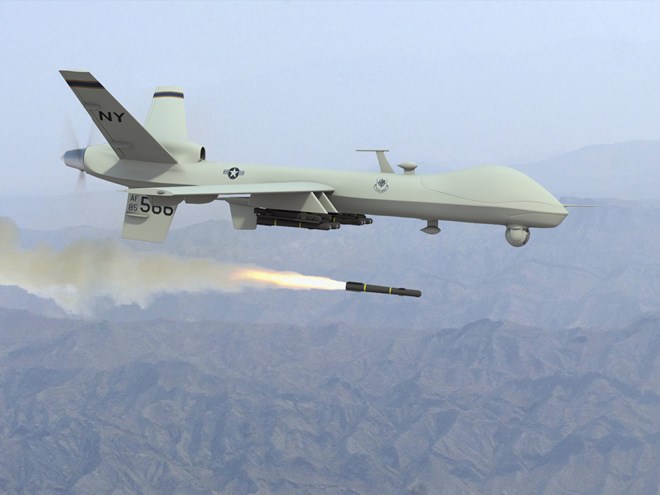
Saturday December 30, 2017
By JOSEPH MURAYA
NAIROBI, Kenya, Dec 30- The United States has intensified airstrikes in Somalia, killing at least 30 Al Shabaab terrorists since last week.
The latest airstrike was conducted on Wednesday, when four terrorists were killed some 25 kilometers west of Mogadishu, destroying one vehicle-borne improvised explosive device which was destined to the capital.
Others had been killed on diverse dates in the past week.
The US Africa Command said no civilian was killed during both airstrikes.
“U.S. forces will continue to use all authorized and appropriate measures to protect the United States, its partners, and interests, and deny safe haven to terrorist groups,” the statement said.
advertisements
The US Government has committed to continue piling pressure on the terrorists, who are responsible for hundreds of attacks in Somalia and neighbouring countries, some of which have left hundreds of people dead—including Kenya where they often stage attacks mainly targeting security forces and civilians.The latest attack occurred on Saturday morning when the terrorists set on fire two police camps in Ijara and escaped with a police land cruiser.
The attackers also destroyed the main communication equipment used in the town but authorities said no casualty was reported, even though some of the terrorists are believed to have escaped with injuries.
Kenya has been a major target by the Somalia-based terror group that is affiliated to Al Qaeda, after their forces, the Kenya Defence Forces joined AMISOM in a combined counterterrorism operation, targeting terrorists, their training camps, and their safe havens in the lawless country.
KDF soldiers have been in Somalia for almost six years now, though there has been piling pressure for them to be withdrawn but President Uhuru Kenyatta insists he will not order their withdrawal.
Al-Shabaab weakened
Over the past few years, the militant group has lost a lot of strategic ground, which was used to control and commanding centre, both for their resources and for launching attacks.
The situation worsened further after divisions emerged in the group, after one faction pledged its allegiance to ISIS, while the other one backed Al-Qaeda terror group, resulting in infighting.
Despite this, the terrorists have managed to launch serious attacks, more so in Mogadishu.
In October, an attack in Mogadishu left 500 Somali’s dead.
During the Somalia Security Conference, U.S. Marine Corps General Thomas D. Waldhauser, Commander, U.S. Africa Command said, “Our efforts to put pressure on the al Shabaab and ISIS terrorist networks provide time and space for the gradual development of the Somali National Army, police force, and government.”
“The threat from al Shabaab continues to be a serious one, as shown by their deadly attacks killing more than 500 in Mogadishu back in October. While we are not increasing our presence or assets there, or intentionally escalating strikes, our pressure on the network and information sharing efforts are paying off with an increasing awareness of what the enemy is doing, making our targeting efforts more successful.”
Civilian Protection
He said, even as the US Forces continue to conduct strikes on terrorist targets, their main focus remains, “on the protection of civilians.”
“This remains a vital component of our efforts and those of our Somali partners,” Waldhauser said.
“As we look to protect innocent civilians and the large number of non-governmental organizations and other agencies operating in Somalia, lethal strikes require precision and patience which are integral to our targeting efforts. Knowing target composition as clearly as possible enables us to quickly counter al Shabaab propaganda claiming civilian casualties.”
During this conference attendees began to map the path ahead for the next few years, agreeing any large-scale transition of security responsibilities from the African Union Mission in Somalia to the Somali National Security Forces is premature and a conditions-based transition plan must be developed immediately.
“While there is certainly more work to be done, this security conference confirmed we have made measurable progress in Somalia,” said Waldhauser.
“With the strong relationship we have established with President Farmaajo and the Federal Government of Somalia, and by continuing to work closely with our allies and partners, we will help set the conditions to transition security responsibilities to the Somali National Security Forces and promote a secure, stable, and prosperous Somalia.”